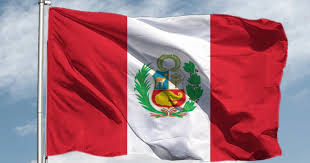
SANTIAGO, April 13 (NNN-MERCOPRESS) — Chile’s Lower House approved by 127 votes in favor to 14 against and 3 abstentions a working week reduction from 45 to 40 hours to be implemented gradually over the next five years, provided or when President Gabriel Boric Font signs into law the bill already greenlighted by the Senate.
“After many years adding support and dialogue, today we can finally celebrate the approval of this project,” Boric said.
The initiative had been submitted by then-Communist Deputies Karol Cariola and Camila Vallejo in 2017 but gained momentum with Boric’s arrival to power. According to Chilean media, the government plans to enact the bill before May 1 (International Workers’ Day).
The first one-hour reduction would come into force in 2024. The next two-hour decrease would be implemented in the third year and the remaining two hours in the fifth year, so that the changes will be fully operational by 2028.
The project also includes the so-called 4×3 clause (4 working days 3 days off) in addition to overtime compensation.
The 14 opposition Republican Party lawmakers who voted against the bill argued that “sooner rather than later it will end up hurting the vast majority.”
The new norm also provides for some flexibility, whereby the ordinary 40-hour scheme can be completed in an average of up to four weeks, with a maximum of 45 hours per week. The text also includes two new rights for fathers and mothers, and people in charge of children under 12 years of age, such as time bands for entering and leaving work, and the alternative of compensating overtime for up to five days of additional holidays.
When the law is enacted, Chile will join Ecuador as the only two Latin American countries to establish a 40-hour workweek.
In Argentina, Bolivia, Colombia, Costa Rica, Mexico, Nicaragua, Panama, Paraguay, Peru, and Uruguay it is of 48 hours. Brazil, El Salvador, Guatemala, and Venezuela have a working week of between 42 and 45 hours, according to the International Labor Organization (ILO). Latin America is one of the regions of the world where most hours are worked per year and has one of the highest rates of labor informality, according to the Organization for Economic Cooperation and Development (OECD). — NNN-MERCOPRESS





